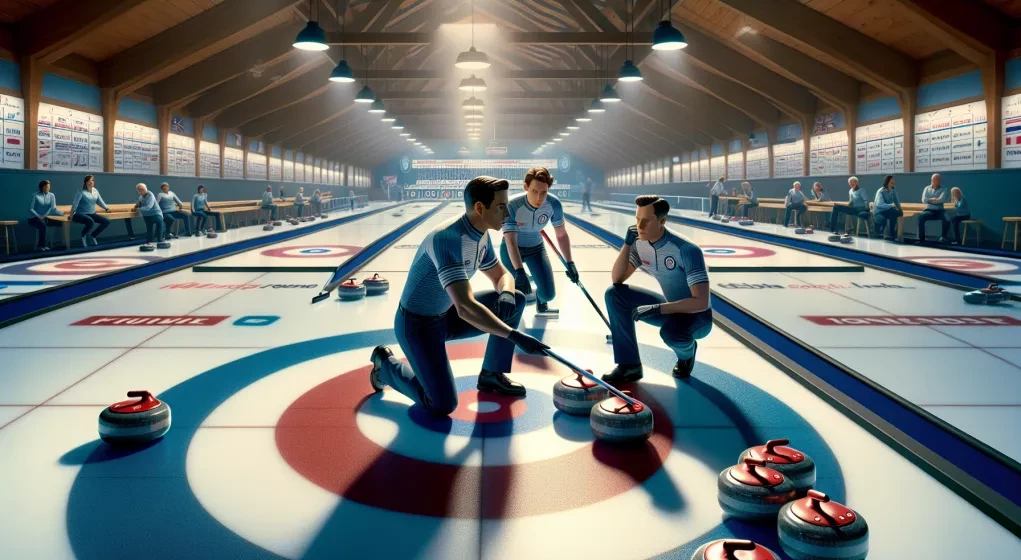In the hushed chill of the rink, where the scrape of stone on ice echoes like whispers of winters past, Team Glenn Howard has been known to adopt an unconventional tactic. Eschewing convention, they occasionally take to the sheet not as a quartet, but a trio—a move born not of folly, but necessity.
Now, though, with the crisp Ontario championship air frosted with challenge, the team stands at a strategical crossroads. Glenn Howard, a venerable titan of the sport, can no longer lead his troops into the fray, his surgical legacy—a knee, once mended, now rebellious—denying him the helm. From the ice to the bench, he transitions, leaving his warriors to adapt in Dorchester, Ont.
Scott Howard, heir to the curling crown, ascends from vice to skip, the weight of his lineage matched only by the stones he must now command. Determination set in stone, he declares, “We made a team decision last week that we’re going to just stick with three. It seemed to work for us in the past. We all feel comfortable and that’s how we’re going to play it out.”
The past has indeed been kind to the three-man formation. The specter of challenge loomed earlier in the season, when Glenn, anguished in Penticton, B.C., bore witness to his knee’s betrayal. Yet in this crucible, Scott, lead Tim March, and second David Mathers proved their mettle. Facing off against their nation’s finest—Kevin Koe, Aaron Sluchinski, and Brendan Bottcher—and triumphing over John Shuster’s American ensemble, they emerged victorious, earning both prize and passage to the current championship charge.
Regaling their epoch, Scott recalls, “We knew our roles and we had to step up.”
Echoes of Brad Gushue’s Brier victory with a three-man band in 2022, his vice felled by the stealthy pathogens of COVID-19, undulate through the annals of curling lore, a testament to the efficacy of the trio’s form. The scarcity of such alignments does nothing to diminish their potency.
For Team Howard, the choice to eschew replacement in favor of familiarity is conscious, measured. “To bring in [a new] fourth player that we don’t know as well just throws off the dynamics of the team,” Scott avows, acutely aware of the delicate balance upon which victory perches.
A history of stepping into the breach fills Scott with assurance. Be it at the Stu Sells Halifax event, where he bested Gushue himself, or in the sporadic substitutions at provincial playdowns, he stands tested and ready.
Yet the void left on the roster looms. Should ill fortunes target one of the enduring three, Adam Spencer remains their ace in reserve, cloaked in the shadows, ever-present.
The calculus of competing diminished in number is one of contrast—more stones to throw, an intimate empathy with the ice, juxtaposed against the inexorable encroach of fatigue, the unyielding broom demanding its tribute.
As Toronto’s John Epping and Sam Mooibroek of Whitby, Ont., alongside a convocation of curling nobility, descend upon the 12-team triple-knockout arena, a question hangs suspended like breath in winter air: Can the heart of a lion, the lineage of a Howard, chart a path through adversity to the longing embrace of the March 1-10 Montana’s Brier in Regina?
Only the scrape of stone on ice, the ancient chorus of curling, holds the answer.






